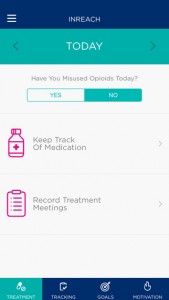 Pharma-related digital health news picked up this week. Boehringer Ingelheim has teamed up with Sutter Health to research COPD interventions; BioDelivery Science created an app to help users deal with prediction opioid addictions; and Canaan Partners' Julie Papanek talked to the Wall Street Journal about pharma's emerging role in digital health.
Pharma-related digital health news picked up this week. Boehringer Ingelheim has teamed up with Sutter Health to research COPD interventions; BioDelivery Science created an app to help users deal with prediction opioid addictions; and Canaan Partners' Julie Papanek talked to the Wall Street Journal about pharma's emerging role in digital health.
Boehringer Ingelheim Pharmaceuticals, the Connecticut-based US subsidiary of German pharma company Boehringer Ingelheim, is working with Sacramento, California-based health system Sutter Health on a five-year research collaboration that will explore the clinical value of mobile health technology, data analytics, and other digital health tech.
The specific goals of the partnership are to create a system for collecting health data from COPD patients, using either tablets or kiosks, during each health encounter, and then increase the ease with which physicians can communicate with physicians about their disease progression and treatment options. By incorporating the collected data into a visual display, the companies want to empower shared decision making and personalized care. Last year Boehringer also announced a pilot with Propeller Health for its COPD and asthma technology. Boehringer already works with Propeller Health on data collection technology for COPD patients, so it's very possible that technology will play into this project.
"Re-designing the patient experience by seamlessly integrating key technologies, applications, and analytical insights has the potential to fundamentally enhance care for our patients with COPD," Joshua N. Liberman, director of Research, Development, and Dissemination at Sutter Health, said in a statement. "We will work with our pulmonologists, patients and Boehringer Ingelheim to design, develop, and test the most promising ideas for use broadly with our and others' patients."
Meanwhile, MedCity News reports that BioDelivery Science, a specialty pharma company based in Raleigh, North Carolina, released an app back in December to help support recovering opioid addicts. The app, called InReach, is designed to work with the company's drug Bunavail.
InReach provides a lot of basic medication adherence features, like tracking goals and monitoring progress, tracking moods and medications, and managing appointments. But it also includes a motivational pin board where users can put pictures of family members to remind them why they're quitting drugs, educational materials for family and friends, and features for identifying and tracking triggers.
MedCity notes that the app has been developed quietly and wasn't mentioned on the company's earnings call, nor did the company have a figure on the number of active users for the app.
Finally, a Wall Street Journal blog post yesterday explored the digital health pharma relationship through the eyes of investor Julie Papanek, a principal at Canaan Partners. Canaan has invested in connected glucometer and population health company Glooko, smoking cessation wearable developer Chrono Therapeutics, and hospital app developer Axial Exchange.
Papanek said that pharma is looking closer at digital health because traditional sales channels are drying up. Instead, under outcomes-based payment models, pharma companies need to repeatedly prove their value to hospitals. To continuously prove that value, she said, pharma companies can use data collected from patients via remote monitoring or wearable devices, or from insurance claims or EHRs.
She also said that the biggest opportunity for digital health companies looking to score pharma partners, is to help the pharma companies modernize their marketing. The regulatory pathways for social media marketing for pharma have opened up, she said, and now pharma companies want to optimize that channel.
















